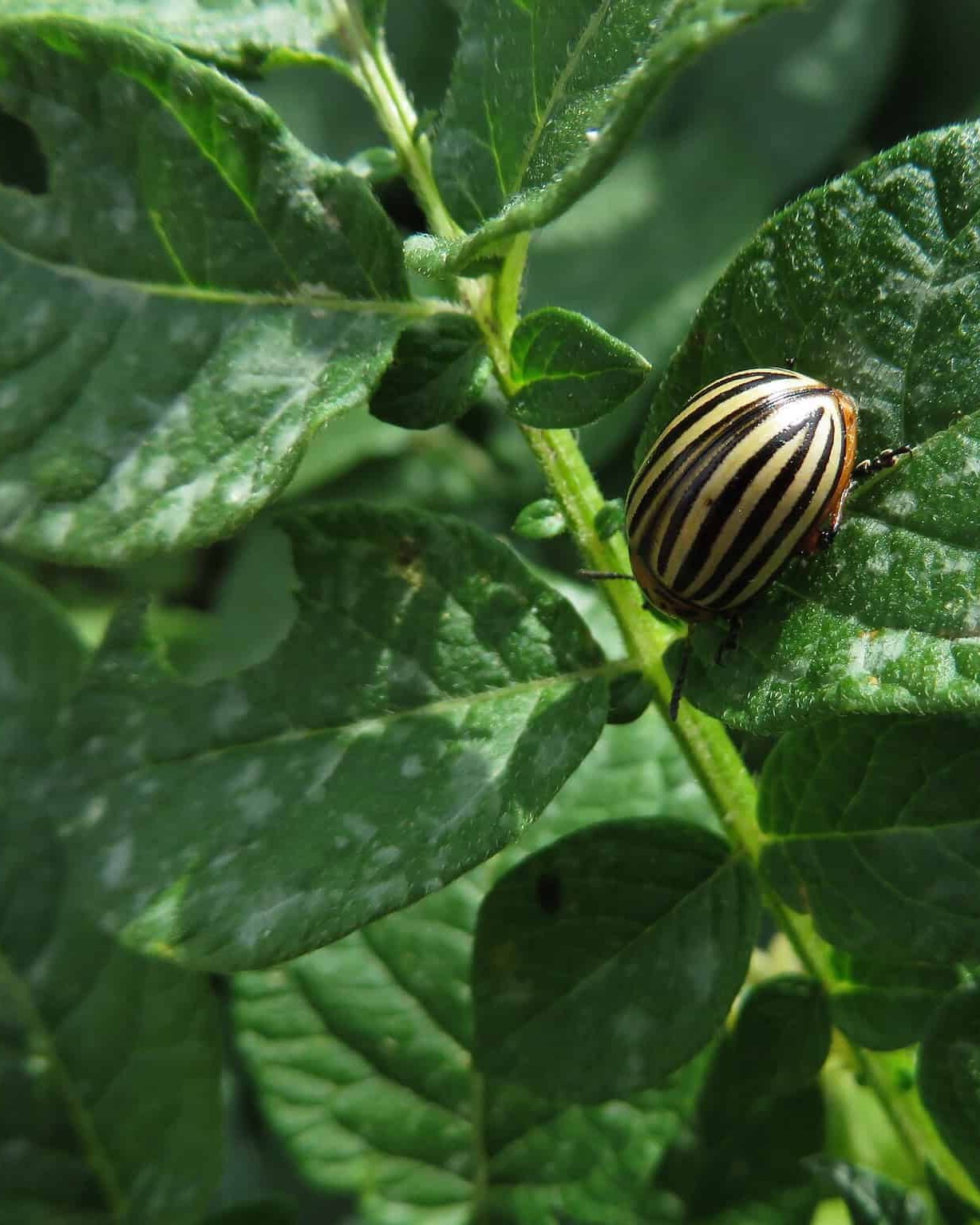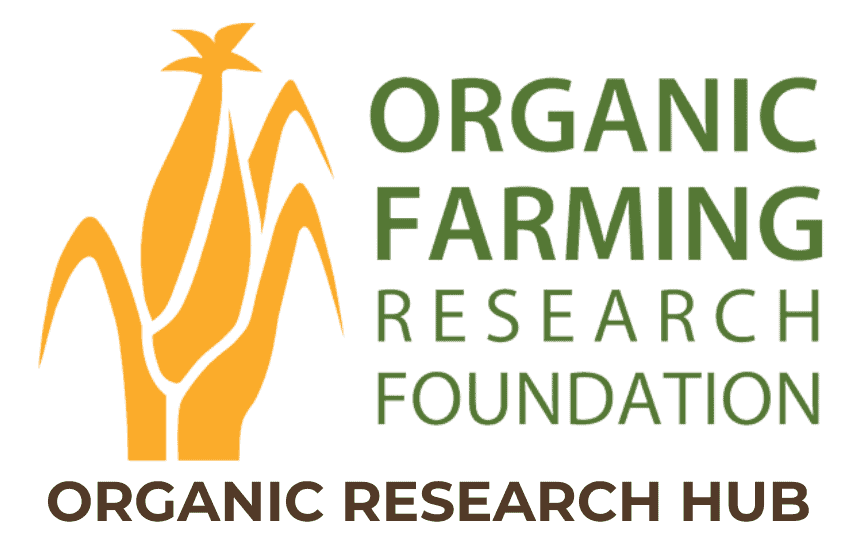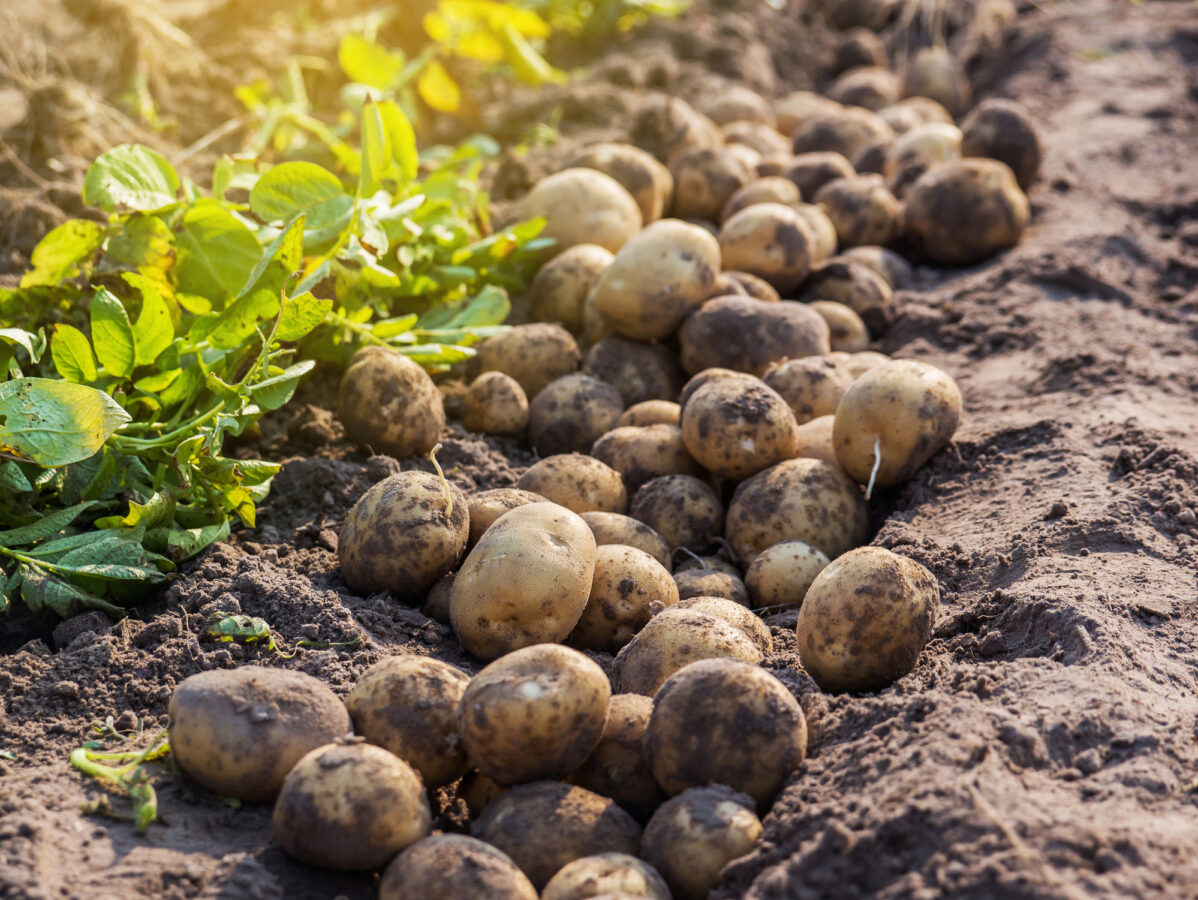Reduction of Colorado Potato Beetle Damage by Organic Mulches
Project Director: Julian Winkler, University of Kassel
Project Overview
The Colorado potato beetle (Leptinotarsa decemlineata) (CPB) poses a major threat to organic and conventional potato production systems across Europe, Asia, and America. In recent years, CPB have gained resilience to several commonly used insecticides; as such, alternative preventative measures are needed.
The application of organic mulch (freshly cut plant material) during potato plant emergence has proven to be a relatively effective CPB reduction strategy at small scales. Although the mechanism behind this reduction remains unclear, some hypotheses include: (1) increased predation due to higher numbers of CPB predators living within the mulched environment, (2) impeded CPB movement due to plant materials on the ground, (3) a less favorable microclimate, and (4) difficulty locating emerging potato plants due to changes in color contrasts.
This study assessed the efficacy of several types of organic mulches (straw, triticale/vetch, and grass/clover) as a natural CPB deterrent at larger scales.

Farmer Takeaways
- Organic mulch may play an important role in the preventative regulation of CPB infestation (primarily by reducing early- and late-stage CPB larval counts and daily leaf consumption), but should not be considered an exhaustive measure.
- Other effective CPB prevention strategies should be applied in tandem with mulching, including cultivating potato fields at least 1.5km away from the previous year’s potato fields, and removing potato volunteers.
Project Objectives and Approach
Evaluate the impacts of different organic mulches (straw, triticale/vetch, and grass/clover) on CPB infestation, leaf consumption, and larval development in larger-scale organic potato production systems
- Field trials were established at several commercial potato farms and one experimental farm (University of Kassel, Neu-Eichenberg, Germany) between 2019 and 2021. All farms included in the study have a history of CPB infestation/pressure.
- Treatments at the on-station trial included: (1) unmulched control, (2) triticale/vetch mulch, and (3) grass/clover mulch. Treatments at the on-farm trials included: (1) unmulched control, (2) triticale/vetch mulch, and (3) straw or grass silage mulch. In all treatments (minus the control), mulch was applied at the time of potato emergence, roughly three to six weeks after planting, at rates ranging from 35-60 tons/hectare.
- After mulching, potato plants were checked regularly for signs of CPB infestation; after the first eggs were observed, CPB and larvae were categorized and counted at intervals of 7 to 15 days.
- At the end of the growing season, potatoes from a sample of each plot were harvested, stored for two months, and weighed. Total yield estimates were then calculated.
Key Findings
Organic mulching may reduce early (L1) and late-stage (L2, L3, L4) CPB larval counts and shift the timeframe of late-stage larval presentation later into the growing season
- A reduction in L1 (first-stage) CPB larvae ranging from 20% in the on-station trial in 2019 to >80% in the on-station trial in 2021 was observed when comparing the different mulch treatments to the unmulched controls.
- Larvae of subsequent larval stages (L2-L4) tended to present earlier in the unmulched controls than in the mulched plots, and by the last day of each trial, L3 and L4 larvae counts were estimated to be approximately 30% and 40% lower in the on-station and on-farm trials, respectively, compared to the unmulched plots. L3 and L4 larvae have the highest leaf consumption rates, so this reduction in later-stage larvae in mulched plots is notable.
Organic mulching may reduce daily leaf consumption by CPB larvae, but may not have significant impacts on overall potato yield at the end of the growing season
- Calculated daily leaf consumption by CPB larvae was lower in the mulch treatments on almost all dates compared to the unmulched controls.
- Final potato yields for the mulch treatments did not tend to differ significantly from those of the unmulched controls, with the exception of the 2019 on-station triticale/vetch mulch treatment, the 2021 on-farm triticale/vetch mulch treatment, and the 2022 on-farm grass silage mulch treatment, all of which were significantly higher than control yields.
Resources
Winkler, J., S.M. Junge, A. Nasirahmadi, O. Hensel, M.R. Finckh, and S.M. Kirchner. 2024. Reduction of Colorado potato beetle damage by various organic mulches.
Read MoreLocation
GermanyCollaborators
Stephan Junge
Abozar Nasirahmadi
Oliver Hensel
Maria Finckh
Sascha Kirchner
Region
Outside U.S.
Topic
Soil Health, Weed Management, Insect/Pest Management
Category
Vegetables/Fruits
Year Published
2023



